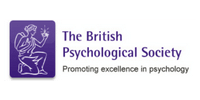Why Group Therapy
If you are experiencing challenges, group therapy can be an invaluable resource. With Alinea Psychologies, you’ll be able to work through your issues with the support of others who understand what you’re going through.
This type of therapy can help you to feel less isolated, and it can also give you new perspectives on your problem. With the guidance of a skilled therapist, you’ll be able to explore your feelings and start working towards a solution.

Generalised Anxiety
This group is based on the principles of cognitive behavioural therapy (CBT). This group aims to teach patients the concepts of CBT and in particular, the relationship between their thoughts, feelings, and behaviours. Each session is structured to help individuals identify their difficult emotions, unhelpful thinking patterns and detrimental behaviours, as well as provide them with alternative strategies and techniques to help change these patterns. Individuals are also set weekly homework tasks to help them practice the skills and techniques learnt in the session.
The weeks in this group will cover:
- CBT foundations – Understanding the foundations of CBT and how a formulation is done including the interplay between thoughts, feeling and behaviours.
- Anxiety – Understanding the role of anxiety as well as the maintenance cycle of anxiety and the neuroscience behind why anxiety exists.
- Understanding your anxiety – Developing a personal formulation and how life experiences can lead to helpful or unhelpful coping strategies.
- Understanding your own cycle – Understanding the relationship with the personal formulation. This is beneficial in dealing with situations as well as understanding personal barriers to change and ways of coping with difficult times.
- Thinking styles – Learning how thinking styles can impact on our ability to cope with life and difficult situations.
- Dealing with difficult situations – Learning useful strategies that can help manage negative internal voices and negative thinking styles as well as strategies to use when you feel stressed or are confronted with a difficult situation.
- Dealing with anxiety – Understand techniques of how to break the cycle of anxiety and cope with anxiety and anxious times.
Therapist:
Catherine Barnes
No. of Sessions:
6 x 1 hour weekly sessions
No. of Attendees
Six
Cost
£300
Group Session not available?
Join our Waitlist and we will get in contact when a suitable Group Session becomes available.
Self Esteem
This 6-week group session is based on the principals of cognitive behavioural therapy.
This group aims to teach participants the concepts of CBT and in particular, the relationship between their thoughts, feelings, and behaviours.
Each session is structured to help individuals to understand their experience, identify their difficult emotions, unhelpful thinking patterns and detrimental behaviours as well as provide them with alternative strategies and techniques to help change these patterns. Individuals are also set weekly homework tasks to help them practice the skills and techniques learnt in the session.
The weeks in this group will cover:
- The Nature of Self-Esteem: Causes and effects.
- The pathological critic: The origins of the citric and why we listen to it.
- Disarming the critic: making your critic useless.
- Accurate self-assessment: your weaknesses and your strengths.
- Cognitive Distortions: thinking styles and combating this.
- Defusing painful thoughts.
- Compassion and the problem of worth.
- Acting on your values.
- The shoulds: How shoulds affect your self-esteem.
- Handling mistakes
- Responding to criticism.
Therapist:
Catherine Barnes
No. of Sessions:
6 x 1 hour weekly sessions
No. of Attendees
Six
Cost
£300
Group Session not available?
Join our Waitlist and we will get in contact when a suitable Group Session becomes available.
Eating disorders/ disordered eating
This topic will be covered by three groups each with their own modules.
Each group in this section can be attended independently however the recommended order would be to start with the motivation and life directions group.
- Motivation and life directions
- Managing Emotions Group
- Cognitive Behavioural Therapy (CBT) module
These modules will be largely based on the Maudsley model of treatment for adults.
Module 1 – Motivation and Life Direction (Eating Disorders)
This group is based on Motivational Enhancement Therapy (MET) combined with some relapse prevention work in preparation for more change-based groups.
Individuals commonly have multiple motivations about a given subject that fluctuate at different times. The aim of this group is to aid the understanding of this process and identify what the barriers are to change with a specific focus on anorexia and other eating disorder behaviours.
Aims.
- To understand the importance of change in relation to valued life directions.
- To enable the patient to examine their personal resources and get a sense of their potential to change.
- Consider both the advantages and disadvantages of their past and present behaviours, both in the short and long term.
- To reflect on where they are now, where they want to be in the future and whether the difference can be addressed using current strategies (particularly eating behaviours).
- To gain insight into what the journey to recovery will look like and how it is not a flick of a switch or a linear process.
Key features.
It is impossible to begin appropriate and effective treatment without identifying shared goals and if the clinician and patient goals are not aligned it can lead to the clinician believing that the patient is unmotivated, and challenging to treat, while the patient is left feeling invalidated, unheard, and coerced (Waller et al, 2007).
Willingness to change can be substantially enhanced through “comprehensive validation” and “draining” e.g. understanding and validating their reasons for the development of an eating disorder/disordered eating. Also acknowledging its positives, past and present, as well as continuously checking the patient’s concerns and frustrations with therapy and downward arrowing/draining the questions. (Geller 2002, Linehan 1993)
The group is client centred and collaborative but within this, it needs to be formulation driven. Thus, a basic generic model understanding of eating disorders will be presented early on with the goal of the group to work to modify the formulation and develop a flexible shared model to fit with them. Thus, creating a common understanding and language for all members of the group.
Module 2 – Managing Emotions (Eating Disorders)
This is a closed group that aims to help understand the purpose of emotions and how they have developed. To then be better able to recognise and manage difficult emotions they may experience with a developed understanding of what emotions can be used for and different ways of relating.
This group will also look at personal relationships and how to navigate and improve relationships and ways of interacting as well as getting needs met.
The group will run in six modules:
1. What are emotions and why do we have them?
Understanding what emotions are and how they are developed and experienced as well as different types of emotions and how they have developed.
2. Relationships in context.
Understanding how human attachments have developed and understanding close relationships and how they work.
3. Mapping relationship patterns
Understanding how thinking patterns change our way of relating and how to navigate different relationships.
4. Becoming an expert on your emotions.
Understanding how emotions can be used, what these emotions individually mean to you, and the different sides to emotions. This will also look at individual relationship patterns and how you get needs met.
5. Learning to manage extreme and overwhelming emotions.
Understanding techniques to manage difficult emotions.
6. The emotional lives of others.
Understanding how to read interactions with people and the different effects on the brain as well as how to improve relationships.
7. Practicing self-compassion
Understanding how experiences can lead to the development of a critical internal dialogue and how this can be maintained and broken.
Module 3 – Cognitive Behavioural Therapy (Eating Disorders)
Aims:
- To understand the cycle of eating disorders and how negative life experiences can contribute to it.
- Consider participant’s relationship with their eating disorder or disordered eating and work on externalizing that relationship.
- Understand barriers to change, such as low self-esteem, depression, and anxiety.
- Consider thought patterns such as perfectionist thinking and how this can contribute to low self-esteem.
- Understand self-compassion and how this can be applied.
- Use cycle to identify triggers.
- Understand the depression and anxiety cycle, triggers, and possible alternatives.
- Identify the negative consequences of these thought patterns.
- Identify areas one would like to change.
Therapist:
Meela
No. of Sessions:
Module 1 – 6 sessions
Module 2 – 6 sessions
Module 3 – 6 sessions
No. of Attendees
Six
Cost
Module 1 – £300
Module 2 – £300
Module 3 – £300
Group Session not available?
Join our Waitlist and we will get in contact when a suitable Group Session becomes available.








Social Anxiety
This group is based on the principals of Cognitive Behavioural Therapy (CBT). This 6-week group aims to teach patients the concepts of CBT and in particular, the relationship between their thoughts, feelings, and behaviours.
Each session is structured to help individuals identify their difficult emotions, unhelpful thinking patterns and detrimental behaviours, as well as provide them with alternative strategies and techniques to help change these patterns. Individuals are also set weekly homework tasks to help them practice the skills and techniques learnt in the session.
The weeks in this group will cover:
Therapist:
Catherine Barnes
No. of Sessions:
6 x 1 hour weekly sessions
No. of Attendees
Six
Cost
£300
Group Session not available?
Join our Waitlist and we will get in contact when a suitable Group Session becomes available.
Join the Waitlist